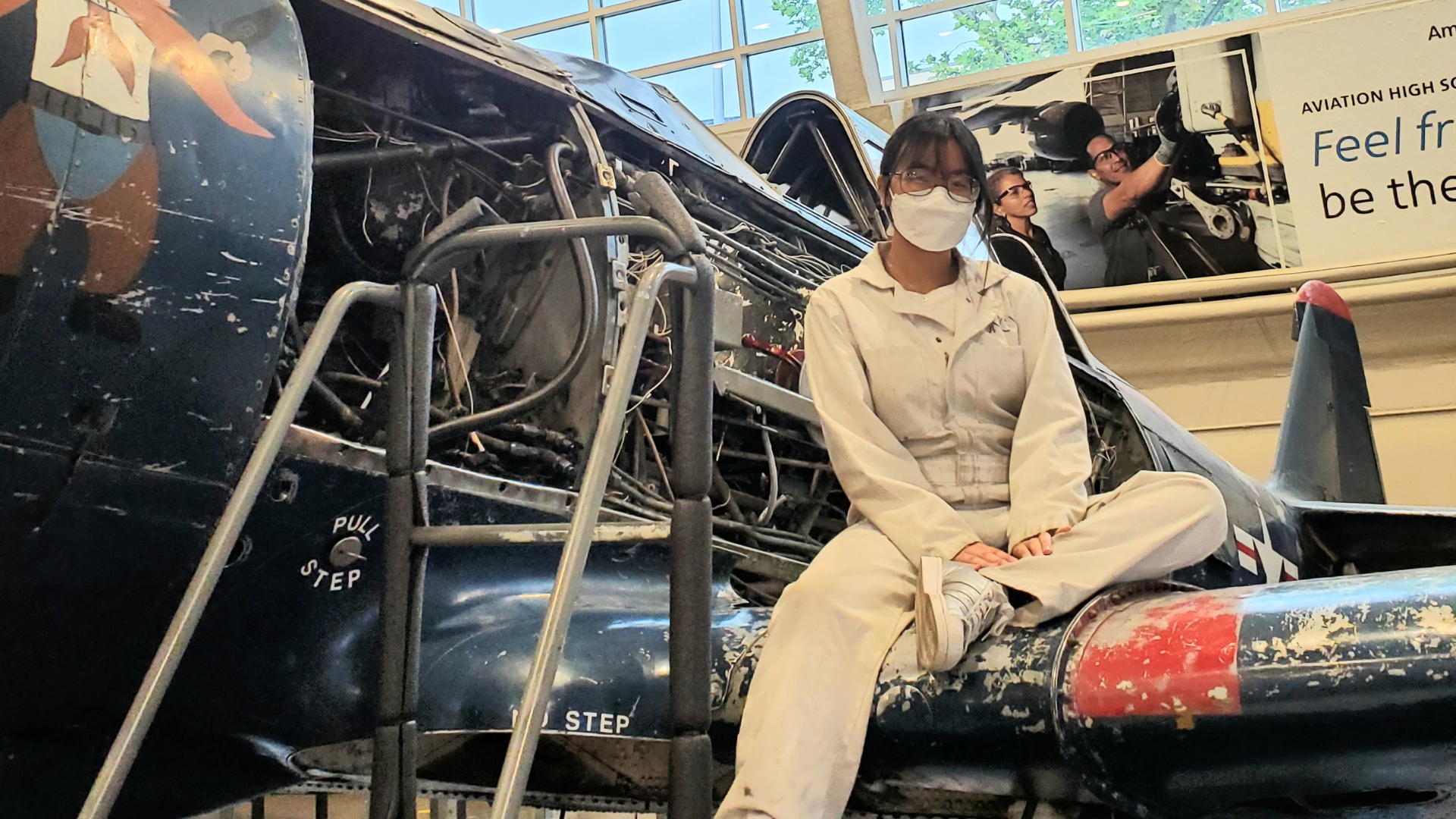Transitioning from Aircraft Maintenance to Finance

Blog Post
Fun fact: I spent four years learning how to fix planes in high school. When people come to learn about my experience with aircraft maintenance, they ask, “Why are you not majoring in engineering?” It was certainly not easy to make a big switch in my career trajectory without much experience in the business field. Yet, I still think I made the right choice. Although these two fields feel very different to most people, they have many similar transferable skills between them.
Four Years of Aircraft Maintenance
I attended a technical high school in New York City with a focus on training students to become certified aircraft maintenance technicians upon graduation. Students go through four or five years of aircraft maintenance curriculum in partnership with the Federal Aviation Administration. To put it in simple words, we learn how to fix planes. Students take classes focusing on different parts of an aircraft, such as the engine's electrical system, sheet metal, welding, and propeller. To me, my high school experience is like a simplified simulation of working in a male-dominated industry as a woman minority because over 70% of the school’s population are male students. It was challenging at first, but I slowly learned various transferable skills that could help me along my future career path, regardless of the field.
Transition Into Finance
I still remember feeling out of place when I started high school. I often find it difficult to express my opinion as a minority in the class. However, throughout my high school career, I learned how to speak up for myself and handle my imposter syndrome. Fast forward to the beginning of my college journey, I caught myself feeling that way again. It was not about being a minority this time but because I felt less knowledgeable about the financial services industry compared to my peers. Starting my first year, I felt overwhelmed by the amount of information given to us during business club recruitment week. While I was trying to figure out what investment banking was, most of my peers had already developed a solid career plan with internships and case competitions. Luckily, I began to feel confident in my transition thanks to the transferable skills I learned. Both aircraft maintenance and the finance world require speed, accuracy, and collaboration. I learned to communicate clearly and effectively, speak up for myself, and take advantage of opportunities and resources. All of these helped smoothen my transition into the competitive business major environment.
Key Takeaways
I am glad I gained transferable skills through experiences that might seem irrelevant to my current career trajectory. If you are considering whether your major is the right fit for you or are scared to make a big switch in your career planning, remember that your previous experience will travel with you, no matter how insignificant it might seem. Most importantly, take advantage of the resources available to you within the Cornell community, such as your advisors, the career service center, or the powerful alumni network.

